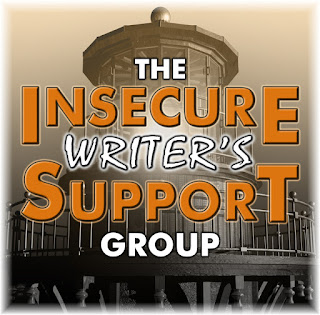It’s the first Wednesday of the month and so it’s time for another Insecure Writers Support Group (IWSG) post! In an IWSG post, we writers bring our writing challenges and problems out into the open to share with each other and try to offer solutions.
The IWSG question for October is: When you think of the term “working writer”, what does that look like to you? What do you think it is supposed to look like? Do you see yourself as a working writer or aspiring or hobbyist, and if latter two, what does that look like?
To me, “working writer” refers to a writer who writes regularly, seriously and, at least in a western economy, for payment of some sort. In other words, a working writer is a professional to some degree. Regardless of how much they are paid or how often, if they are writing to make an income while producing their best work then they are a working writer. Yet, this term can be tricky, because a working writer may never have been paid for their work but they are working towards getting paid and therefore seriously producing work that they are determined to sell whether it’s through freelancing, self-publishing or a more traditional route such as on a magazine staff or through a book publisher.
I am a working writer. I have been paid for my writing, both fiction and non-fiction. How much I have been paid is a different story. For the large part, I have been underpaid as a writer. I used to write science fiction news, and movie and technology reviews for the now out-of-business Examiner.com. I was paid regularly, so to say, but, because it was a click-ad site and so a site that pays from revenue, many of us were paid very low.
As a working fiction writer, because I’ve mostly self-published, I have made little from my books. This isn’t so much the fault of the systems I self-publish through, such as Amazon, as it is circumstances. I am a writer with a day job.
But I am turning to another source to support my writing and art. I’ve been creating a Patreon page. Patreon© is a platform for artists and writers to set up pages that offer memberships to their fans. I have heard good things about it and that it’s the way to go for artists. I just finished setting up membership benefits last week and will be launching the page in the next two days. My Patreon page will offer a treasure chest of benefits such as book discounts, behind-the-scenes articles about my fiction, and even merchandise such as stickers and posters! You can be sure that when my Patreon page launches I will announce it here at the Fantastic Site and my Facebook page. If you’re interested, tune in tune in to one of those two.
“Working writer” is definitely not a fixed definition. The term is different things to different writers. But I define it as a professional writer, even if that writer is professional only in the slightest. It can also be defined as a person who is doing the work of a pro writer and so is serious about the writing rather than just doing it for a hobby. How do you define “working writer”? Have you used Patreon to promote your writing and art and, if so, what was your experience with it like?
Today’s IWSG is brought to you by these super co-hosts:, Jemima Pett, Beth Camp, Beverly Stowe McClure, and Gwen Gardner! IWSG was founded by awesome author Alex Cavanaugh, writer of the Cassa Series of novels!
Until next time . . .

Considering the responses I've been reading, it does mean a lot of different things depending on who you ask. And it is a rare writer who actually gets a fair payment from writing, especially since so much time is put into it.
ReplyDeleteYes, it is rare that a writer gets fair payment. That's why if a person wants to do it as a career they'd better do it because they really like it and not just for the money.
DeleteI have heard a lot about Patreon from some of the YouTube channels I watch. I never considered it for writers. That makes sense. Good luck with it!
ReplyDelete